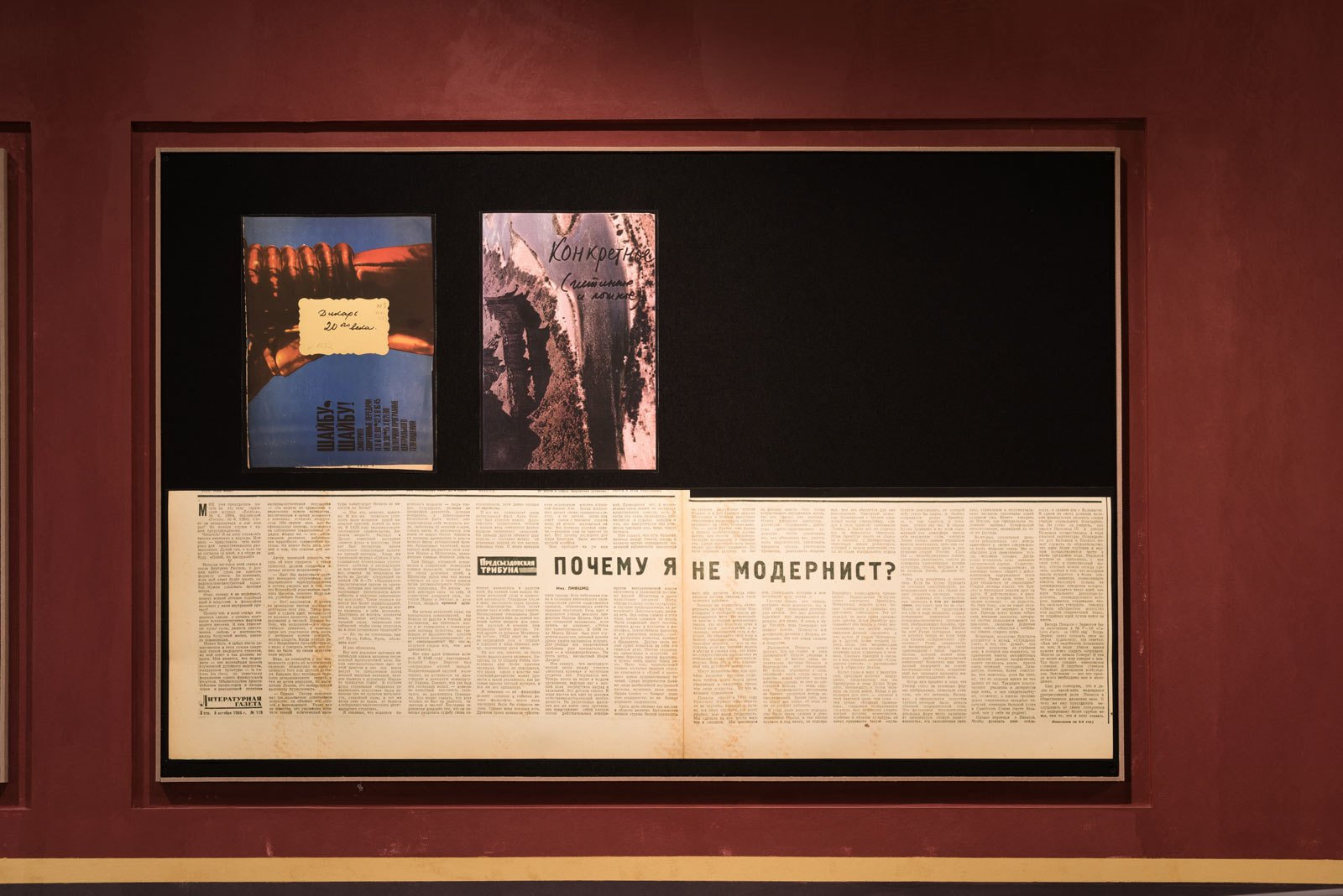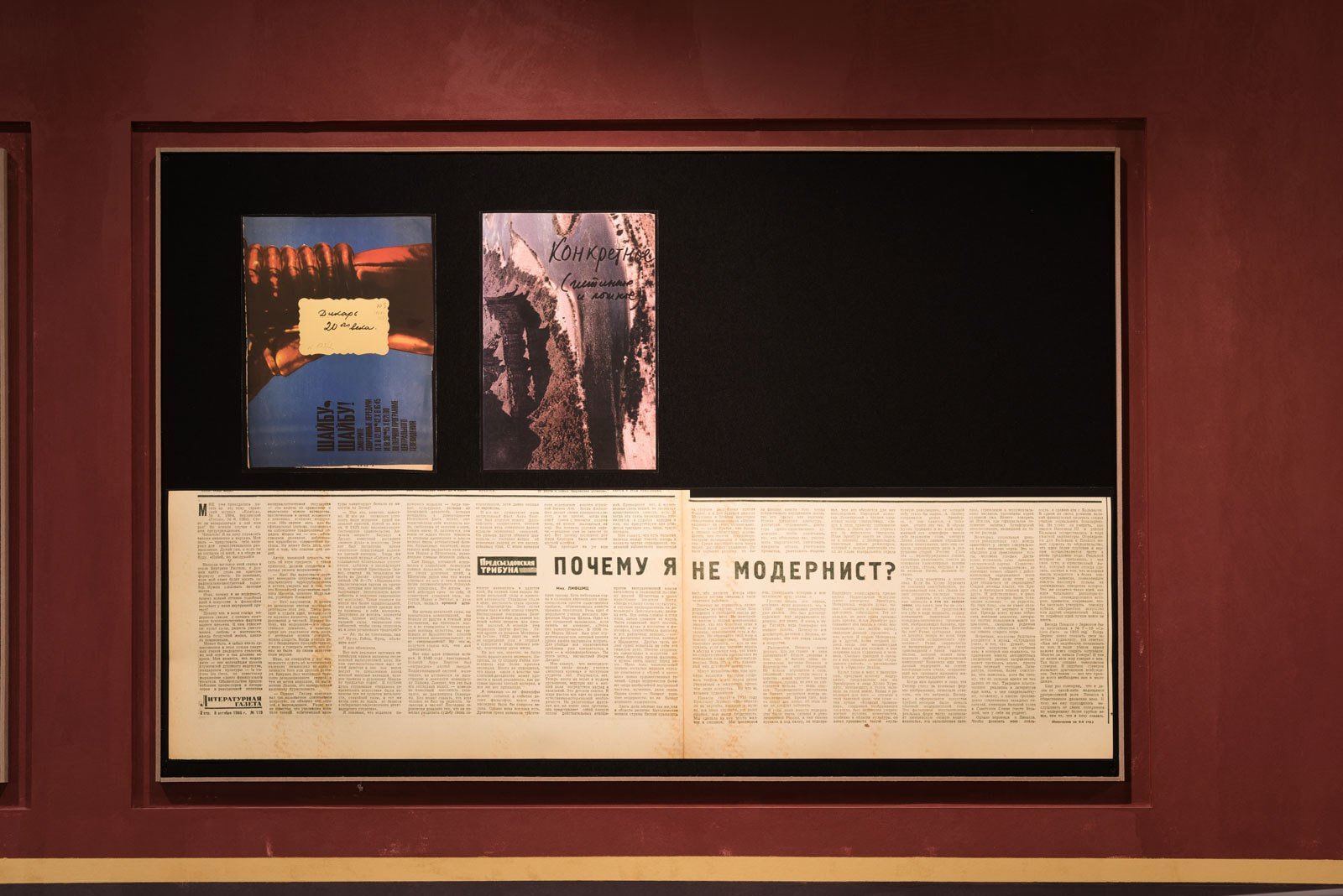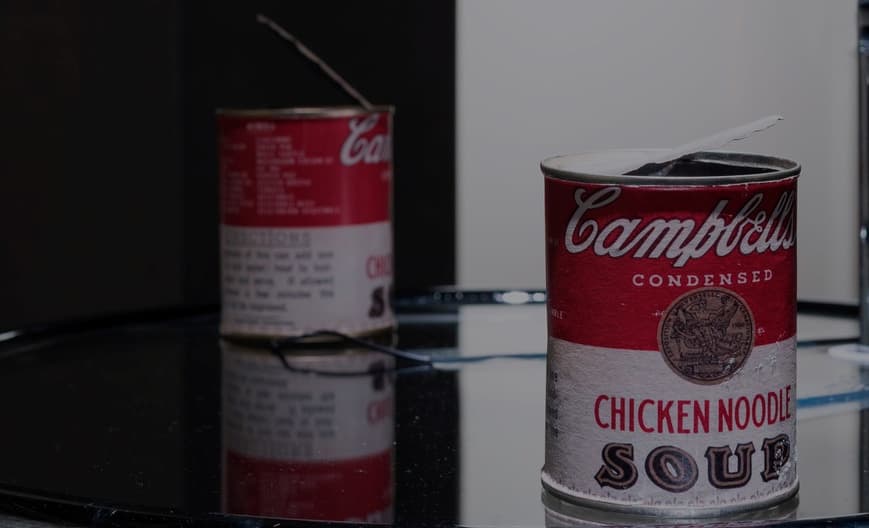The research project devoted to Soviet philosopher and cultural critic Mikhail Lifshitz (1905–1983) was initiated by artist Dmitry Gutov (b. 1960, Moscow) — who has been studying Lifshitz for many years and founded the Institute of Mikhail Lifshitz — and curator David Riff (b. 1975, London), who has translated into English several of the philosopher’s key texts including The Philosophy of Art of Karl Marx and The Crisis of Ugliness: From Cubism to Pop-Art (2018, Brill).
As part of the Field Research project launched in 2015, the team studied over 200 files of documents from public archives, including the Russian State Archive of Literature and Arts; the archive of the State Tretyakov Gallery; and the family archive of Lifshitz’s daughter, Anna Pichikyan. Documents included unpublished dossiers and notes on political purges, correspondence, manuscripts, shorthand lecture notes, Lifshitz’s photographs, and his unpublished thesis.
In the exhibition Field Research: Liberating Knowledge. Progress Report II Gutov and Riff presented the installation whose title consisted of Lifshitz’s quote on Nikolay Chernyshevsky (1828-1889), «People should see that Chernyshevsky’s writings are brilliant, subtle, and ironic; that, like Socrates, he played the fool for the purpose of uncovering the truth and scandalized his contemporaries with shocking opinions in order to wake them up from their sleep.» This quote also describes how Lifshitz himself approached writing. A harsh and militant critic of modernism, he was not afraid of accusing universally acclaimed artists of supporting totalitarianism and consumerism. However, his critique, which caused a heated debate among his contemporaries, was much more informed and sharper than the standard Soviet attacks on Western art, and remains of interest today.
The three-year research project finished with the exhibition If our soup can could speak: Mikhail Lifshitz and the Soviet Sixties, which celebrated the fiftieth anniversary of the scandalous publication of The Crisis of Ugliness.
Status: 2015–2018
Researcher: Dmitry Gutov, David Riff



